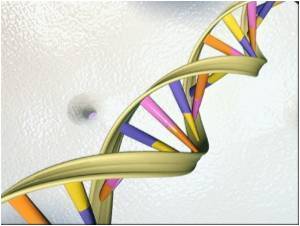Is screening of neonates for lysosomal storage disorders useful? Some researchers suggest they are.
Lysosomal storage disorders are genetic disorders that manifest due to the absence of an enzyme. As a result, some substances that are normally broken down in the body by the enzyme escape degradation and accumulate, causing a variety of health problems. These diseases are progressive and cause complications that could affect the heart, brain, muscles and the kidneys. They are estimated to affect 1 in 7700 live births in the white population.Neonatal screening tests are tests carried out in newborns to detect any diseases before the appearance of symptoms. Early detection is useful to start treatment early or to take precautions to prevent complications. In order to be cost-effective, screening tests under National Programs are done for conditions which affect a large number of people.
Researchers in Austria conducted a study to test the practicality and usefulness of using neonatal screening for four lysosomal storage disorders- Gaucher's disease, Pompe's disease, Fabry's disease, and Niemann-Pick disease.
The study was conducted in 34,736 newborn babies between the period of January and July, 2010 in Austria. Enzyme activity was measured on dried blood samples. The enzymes whose activity were measured included acid β-glucocerebrosidase (which is deficient in Gaucher's disease), α-galactosidase (which is deficient in Fabry's disease), α-glucosidase (which is deficient in Pompe's disease), and acid sphingomyelinase (which is deficient in Niemann-Pick disease types A and B). The positive cases were rechecked on a second blood sample. Genetic testing on the blood samples with low enzyme activity was also carried out.
The study identified 124 cases with low enzyme activity. When tests were carried out on second blood samples, 38 babies were found to have low enzyme activity. Genetic testing confirmed the disease in 15 of the 38 babies. Among these, Fabry’s disease was found to be most common with an incidence of 1 per 3859 births.
This study thus concluded that lysosomal storage disorders may not be as rare as they are thought to be – the incidence found in this study was 1 in 2315 births! Enzyme replacement therapy is available for Fabry’s disease. Thus, early diagnosis of this condition can help in initiating early treatment. Also, since these diseases are genetically transmitted, early diagnosis can help the parents understand the risk of the similar disease occurring in other children.
Larger studies will be required to establish the usefulness of screening for lysosomal storage disorders in different ethnic groups.
1. Neonatal screening for lysosomal storage disorders: feasibility and incidence from a nationwide study in Austria; Thomas P Mechtler et al; The Lancet, Early Online Publication, 30 November 2011.
Source-Medindia









